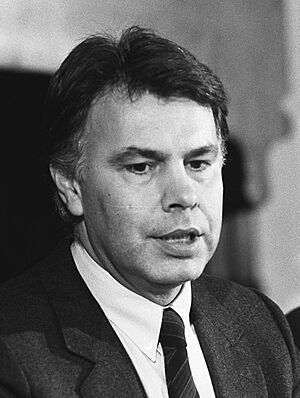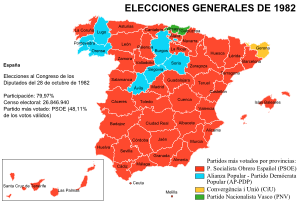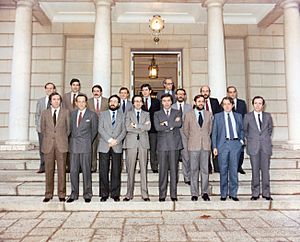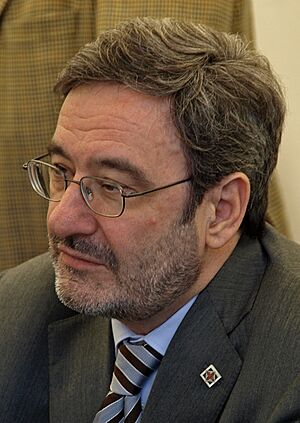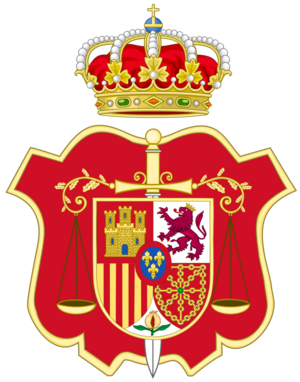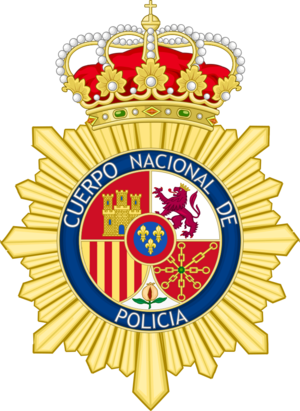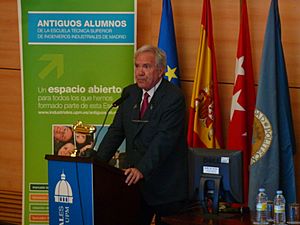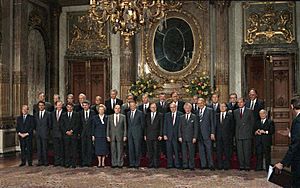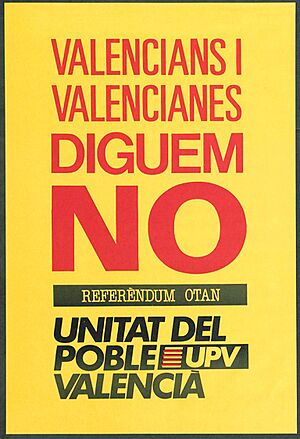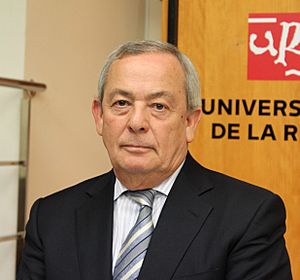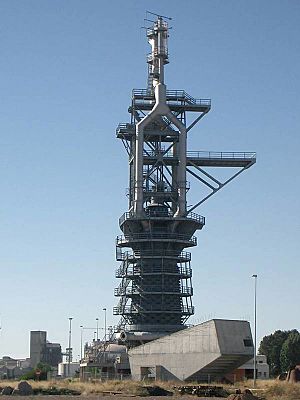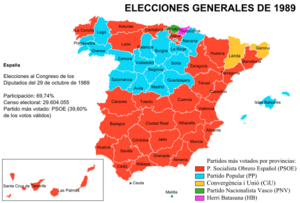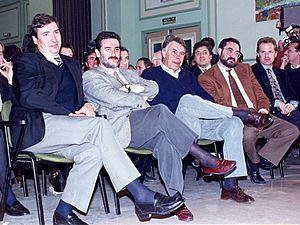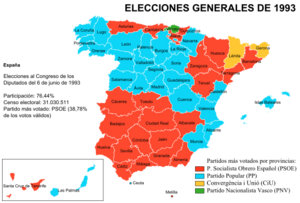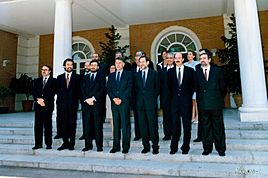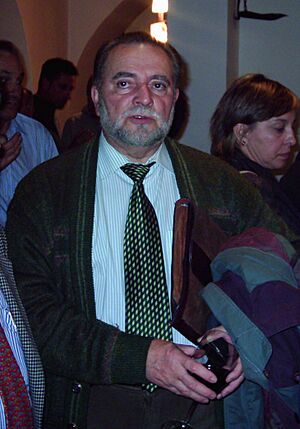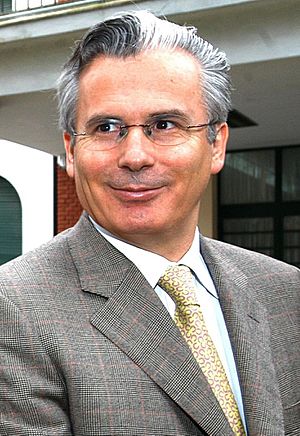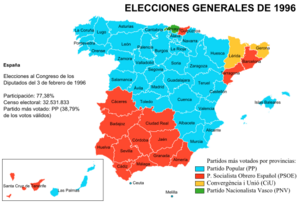Governments of Felipe González facts for kids
The governments of Felipe González (1982-1996) led Spain for almost 14 years. This happened during the time of King Juan Carlos I.
Felipe González was the leader because his party, the Spanish Socialist Workers' Party (PSOE), won four elections in a row. They won in 1982, 1986, 1989, and 1993. The first three wins were by a huge majority. This was a big achievement in Spanish and European politics. During this time, Spain became a strong democracy. It also joined the European Community in 1986, which later became the European Union in 1992. Spain changed a lot, becoming more like its European neighbors.
Contents
How Felipe González Won in 1982
The elections on October 28, 1982, had the most people voting ever. About 80% of voters participated. This showed that people really supported democracy in Spain.
The PSOE used the slogan "Por el cambio" (For Change). They won a massive victory with over 10 million votes. This gave them a clear majority in the Congress of Deputies (202 seats) and the Senate. The second party, People's Alliance, got about half as many votes. They became the main conservative party. Other parties like PCE and UCD lost many seats.
This election changed Spanish politics a lot. The PSOE became the dominant party. This new political system became even stronger in the local and regional elections of May 1983. The PSOE won control of 12 out of 17 regions.
Many historians see the 1982 elections as the end of Spain's move to democracy. First, many people voted, showing their support for the democratic system. Second, it was the first time a new party took power peacefully. Third, a party that was against the old Franco regime came into government.
Spain's "Modernization" Project
Felipe González's governments aimed to "modernize" Spain. The goal was to make Spain similar to other advanced democratic countries. They didn't plan a big "socialist transformation."
The PSOE's plan in 1982 was very ambitious. They wanted to strengthen democracy and fix the economy. A key promise was to create 800,000 jobs. They also aimed to make the economy more efficient. They wanted to help small businesses and improve large public industries. Another goal was to make society fairer. This included making healthcare, education, and pensions available to everyone. Felipe González summarized his goal as "Que España funcione" (Let Spain work).
However, the country faced many challenges. The economy was struggling with high unemployment (over 16%) and inflation. Also, ETA terrorism was still a problem. There were also worries about military coups. The government worked to stop these threats and improve the country.
Strengthening Democracy in Spain
How the Government Changed the Military
The Socialist government knew they needed to stop military threats and terrorism to make democracy strong. To control the military, they made several changes. They wanted the army to be professional and follow civilian leaders. Narcís Serra, the Minister of Defense, reduced the number of generals and officers by 20%. This made the army more efficient.
In 1984, a new law put the military under the direct control of the Minister of Defense. It also combined the Navy, Air Force, and Army into one structure. Military courts also became part of the civilian justice system. These changes helped end the idea of the military acting on its own.
There was one last attempt at a coup in June 1985. But intelligence services stopped it. After this, military threats to democracy completely disappeared in Spain.
Also, the time for compulsory military service was shortened. It went from 15 months to 12 months in 1984, and then to 9 months in 1991. Rules for conscientious objectors (people who refuse military service for moral reasons) were also set up.
Education and New Rights
The Minister of Education, José María Maravall, created new laws. The Organic Law for the Right to Education (LODE) recognized and funded private schools, especially religious ones. These schools became "concerted" centers. Teachers and parents gained more say in how these schools were run.
The University Reform Act (LRU) gave universities more freedom in their finances and academics. It also helped university teachers get stable jobs. Many new universities were created, and more scholarships were given. By 1990, over a million students were in universities for the first time.
New laws also strengthened rights and freedoms from the Constitution. These included laws on Habeas Corpus (the right to be brought before a judge), Freedom of assembly, and Trade Union Freedom.
In 1985, the way members of the General Council of the Judiciary were chosen changed. All 20 members were now appointed by the Parliament. Critics said this made the justice system too political.
Regional Governments in Spain
The government approved the last few regional laws for self-rule. They also transferred a lot of public spending to the regions. By 1988, regional governments were spending 20% of all public money. This made Spain one of the most decentralized countries in Europe.
However, the governments of the Basque Country and Catalonia wanted even more self-rule. They felt the central government was limiting their powers. This was made worse by the ongoing ETA terrorism.
Fighting Terrorism
The National Police was created. The Guardia Civil kept its military structure.
The government tried to get imprisoned terrorists to leave violence behind. But during this time, a "dirty war" against ETA increased. This was led by the GAL, a group that claimed to be "Antiterrorist Liberation Group." This group was linked to parts of the state security system.
The GAL was made up of some security forces and mercenaries. They used secret funds from the Interior Ministry. They aimed to fight ETA with violence. The GAL caused 28 deaths by 1987.
The government tried to talk directly with ETA leaders. But these "Algiers talks" failed. So, the government sought a big anti-terrorism agreement. This led to the Ajuria Enea Pact in January 1988, which included Basque nationalist parties.
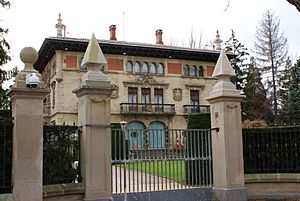
Soon after, two policemen, José Amedo and Michel Domínguez, were arrested. They were linked to GAL crimes. This led to the resignation of Interior Minister José Barrionuevo. A new law on citizen security was passed. It allowed police to enter homes without a warrant if they suspected a crime. This law was later overturned.
Joining Europe and NATO
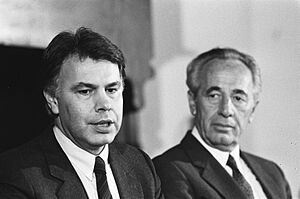
From the start, the socialist governments wanted Spain to be fully part of Europe. In 1985, talks to join the European Economic Community (EEC) finished. On June 12, the agreement was signed in Madrid. On January 1, 1986, Spain and Portugal joined the EEC. This ended Spain's long isolation.
Another big goal was Spain's membership in NATO. This caused a major political debate in the 1980s.
NATO Membership Vote

After joining the EEC, it was time for the promised vote on NATO membership. Felipe González and his government decided to support staying in NATO. But they set three conditions:
- Spain would not join NATO's military command structure.
- No nuclear weapons would be allowed in Spain.
- US military bases in Spain would be reduced.
González had to convince his own party first. The change in stance led to the resignation of the Foreign Affairs Minister.
The main reasons for the PSOE's change were pressure from the US and Europe. Also, staying in NATO was seen as linked to joining the EEC. The Ministry of Defense also favored closer ties with NATO.
Many groups, including the Communist Party of Spain, opposed NATO membership. They formed a broad coalition called United Left. The People's Alliance, surprisingly, chose to abstain from voting.
Felipe González said he would resign if the "NO" vote won. This seemed to influence many voters. The "YES" vote won in the March 12, 1986, referendum, but by a small margin. About 52% voted "YES," and 40% voted "NO." The "NO" vote won in Catalonia, the Basque Country, Navarre, and the Canary Islands.
This referendum was a tough challenge for González. But the "YES" win strengthened his leadership. The economy was also improving. The PSOE won another majority in the elections that year, though with fewer seats.
Economy and Social Changes
Building the Welfare State
Spain's Welfare state grew a lot during the socialist period. Healthcare became available to everyone with the General Health Law in 1986. Public education also expanded to all with the LOGSE law in 1990. Compulsory education was extended to age 16. Spending on pensions and unemployment benefits also increased a lot.
This was possible because the government increased taxes. The economy also grew strongly from 1985 to 1992.
Economic Growth and Industry Changes
Ministers Miguel Boyer and Carlos Solchaga worked to control inflation. They succeeded in lowering price increases. But this led to higher unemployment, which reached over 20% in 1985.
The government also changed the Workers Statute in 1984. This made the job market more "flexible." It led to more temporary jobs instead of permanent ones.
The government also modernized industries. They closed old or failing companies. They gave money to companies to improve technology and become more competitive. The iron, steel, and shipbuilding industries were most affected. This caused conflicts between workers and police. For example, the Altos Hornos del Mediterráneo in Sagunto was closed. The government also sold state-owned companies like SEAT to Volkswagen.
There were also big investments in new roads and the Madrid–Seville high-speed rail line. This high-speed train started running in 1992.
Split Between PSOE and UGT
The economy started growing strongly in 1985. But this also led to a split between the PSOE and the UGT trade union. The UGT felt the government was not following its promises on economic and social issues. The government focused on strict economic policies and flexible labor laws.
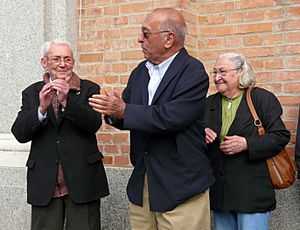
The first big disagreement was over a new Pension Law in 1985. The UGT leader, Nicolás Redondo, voted against it. The final split happened in 1987 during a TV debate between Redondo and Minister Carlos Solchaga. Redondo told the minister, "Your problem, Carlos, is the workers."
This led to a general strike on December 14, 1988. The strike was a huge success, paralyzing the country. About 8 million workers participated. The government withdrew its controversial Youth Employment Plan. Pensions were also increased, and more people received unemployment benefits.
Socialist Decline (1989-1996)
The Fourth Term (1989-1993)
Felipe González called elections for October 1989. He won another majority, but only by one seat. This was a sign of weakening support.
The People's Party (PP) ran for the first time. It was a new version of the People's Alliance. The PP aimed to be a broad center-right party. José María Aznar became its leader. The PP got 107 seats, far behind the PSOE's 176.
United Left gained more votes and 17 seats. The Democratic and Social Centre lost many seats. The PSOE suffered a big blow in the 1991 local elections due to the first corruption scandal, the "Guerra case." They lost control of major cities like Madrid and Seville.
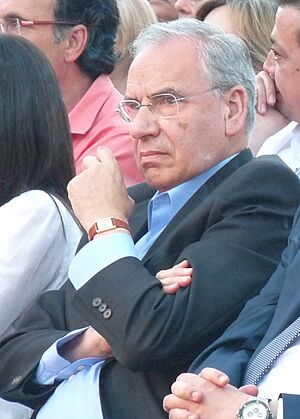
The "Guerra case" in 1989 was the first scandal. It involved the vice-president's brother, Alfonso Guerra, who was accused of using his influence for personal gain. Alfonso Guerra refused to resign at first. This caused tension between the PSOE and opposition parties. Eventually, Felipe González dismissed Alfonso Guerra in January 1991.
Another scandal, the Filesa case, emerged in May 1991. It involved illegal funding for the PSOE through fake companies. These companies charged for non-existent reports in exchange for public contracts. The scandal showed that the party received over 1,000 million pesetas this way. Some people were later sentenced for tax crimes related to this.
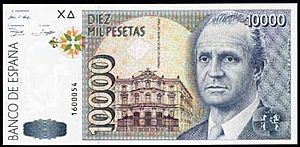
The "Ibercorp case" in 1992 involved the governor of the Bank of Spain, Mariano Rubio. He was accused of having a secret account. This scandal showed close ties between the government and wealthy business people.
These scandals led to a loss of trust in the government. The opposition demanded more accountability.
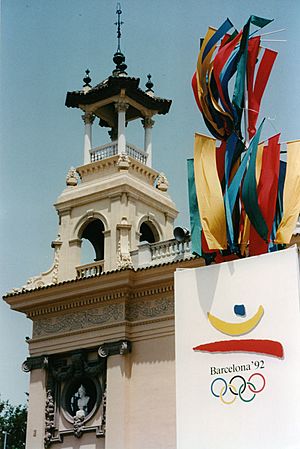
Despite the political issues, 1992 was a big year for Spain. The Summer Olympics in Barcelona were a huge success. Spanish athletes won many medals. The Seville Expo also attracted millions of visitors. These events showed Spain as a modern country to the world.
Spain also played a bigger role internationally. It hosted the Middle East Peace Conference. It also actively participated in building the European Union. The US military bases at Zaragoza and Torrejón de Ardoz were closed. Spain also supported allied operations in the first Gulf War.
However, a strong economic recession began in 1992. Unemployment reached a record high of 3.5 million people. In May 1992, a general strike protested cuts to unemployment benefits. But the government had a success against terrorism. The top three ETA leaders were arrested in France.
Disagreements within the PSOE led to early elections in June 1993.
The "Legislature of Tension" (1993-1996)
In the elections of June 1993, the PSOE surprisingly won again. But they lost their absolute majority. Felipe González had to form agreements with Catalan and Basque nationalist parties to govern.
The main task for the fourth government of Felipe González was to deal with the economic crisis. New measures were introduced to create jobs. But unions rejected some of these, leading to another general strike in January 1994. However, the government did reach an agreement on pensions, known as the Toledo Pact in April 1995.
In foreign policy, Spain participated in NATO's intervention in the Yugoslavian war. This led to the appointment of Spain's Foreign Affairs Minister, Javier Solana, as Secretary General of NATO.
However, new scandals caused major conflicts with the opposition. This period became known as the "legislature of tension."
In late 1993, the Bank of Spain took control of the Spanish Credit Bank. Its president, Mario Conde, was removed and later prosecuted. Another financier, Javier de la Rosa, was also arrested for fraud.
The most shocking scandal was the "Roldán case." In 1993, Luis Roldán, the head of the Civil Guard, was accused of taking illegal money and misusing secret funds. He fled in 1994. The Interior Minister resigned for letting him escape. Roldán was later arrested in Laos and sentenced to 28 years in prison.
Another case involved Gabriel Urralburu, a former regional president, who was jailed for taking commissions.
These scandals led opposition leaders like José María Aznar (PP) and Julio Anguita (United Left) to demand González's resignation.
In the 1994 European Parliament elections, the Popular Party won more votes than the PSOE for the first time. Aznar then constantly called for González to resign.
Judge Baltasar Garzón reopened the GAL case. Policemen who had been convicted for GAL attacks were released and agreed to tell what they knew. Their statements led to the arrest of high-ranking officials. These included Julián Sancristóbal, director general of State Security, and Rafael Vera, former secretary of State for Security. Former Interior Minister José Barrionuevo was also implicated.
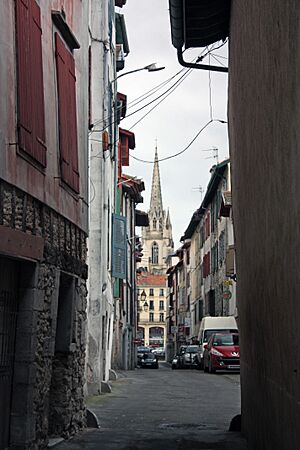
Another major scandal related to the "dirty war" was the "Lasa and Zabala case" in 1995. A Civil Guard general, Enrique Rodríguez Galindo, was arrested. He was accused of involvement in the kidnapping and murder of two alleged ETA members. He and others were later sentenced to long prison terms.
The "CESID papers" scandal also emerged. It involved illegal wiretaps by the secret service. This led to the resignation of Vice President Narcís Serra and Defense Minister Julián García Vargas.
In May 1995, local and regional elections were held. The People's Party won again, ahead of the PSOE. They gained control of most major cities.
Due to the many scandals, the Catalan nationalist party CiU withdrew its support for the government. This left the government in a minority. Felipe González had no choice but to call early general elections.
The 1996 Elections
In the general elections on March 3, 1996, the People's Party won 156 seats. The PSOE got 141 seats. United Left, which hoped to do better, ended up with 21 seats.
The PP won, but not by a huge margin. They beat the PSOE by only 300,000 votes. They did not get an absolute majority. However, the PP achieved its goal of removing the Socialists from power after more than a decade. This marked the beginning of the governments of José María Aznar.
See also
 In Spanish: Gobiernos de Felipe González para niños
In Spanish: Gobiernos de Felipe González para niños
 | Isaac Myers |
 | D. Hamilton Jackson |
 | A. Philip Randolph |


